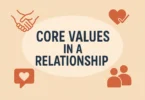Have you ever locked eyes with someone and felt like the world momentarily paused? Or found yourself drawn to someone without really knowing why? That intense pull, that spark, that effortless connection — that’s what we often call romantic chemistry. It’s the invisible thread that ties two people together, sparking curiosity, passion, and emotional energy that seems to come out of nowhere.
But romantic chemistry isn’t just about butterflies and flushed cheeks. It’s a complex mix of psychological, emotional, and physical reactions that your mind and body experience when you’re around someone who just feels right. Some call it fate, others say it’s science — the truth is, it’s a little bit of both.
In this post, we’ll unpack what romantic chemistry really means, the science behind it, how it differs from compatibility, and the clear signs that prove you’ve got it with someone. If you’ve ever wondered whether that spark you’re feeling is something real, you’re in the right place.
Headlines
7 Clear Signs You’ve Got Romantic Chemistry
What Is Romantic Chemistry?
Romantic chemistry is that instant, undeniable connection you feel when you meet someone special. It’s more than just attraction — it’s a deep, magnetic pull that seems to go beyond words. In this section, we’ll explore what romantic chemistry truly means, the science behind it, and how it plays a key role in creating lasting connections.
The Science Behind the Spark
Ever wonder why you feel butterflies in your stomach when you meet someone special? That electric feeling — the one that makes your heart race and your words stumble — isn’t just a romantic fantasy. It’s actually rooted in science. Romantic chemistry has a lot to do with what’s happening inside your brain and body when you’re around someone who ignites your interest.
When we experience romantic chemistry, the brain releases a powerful cocktail of chemicals — most notably dopamine, oxytocin, and serotonin. Dopamine is the pleasure and reward hormone, and it floods your system when you’re attracted to someone, making interactions with that person feel exciting and addictive. It’s the same neurotransmitter that’s triggered when we indulge in chocolate or achieve a goal — no wonder falling for someone can feel so euphoric.
Oxytocin, often called the “love hormone,” plays a different role. It promotes feelings of trust, bonding, and emotional closeness. It’s released during physical touch — like a hug or even subtle body language cues — and it helps deepen the sense of intimacy. This is why physical chemistry and emotional bonding often go hand in hand.
Then there’s the limbic system, the emotional center of the brain. It kicks into high gear when we feel a romantic connection, processing everything from facial expressions to eye contact, tone of voice, and even scent. Yes — pheromones also play a role, sending subconscious signals that enhance or decrease attraction.
Your nervous system gets involved too. Have you ever noticed your palms sweating, your voice trembling, or your heart racing around someone you’re attracted to? That’s your sympathetic nervous system reacting — preparing your body as if it’s encountering something thrilling or dangerous. It’s fight-or-flight, but make it romantic.
In short, that “spark” you feel is a fascinating mix of neurochemicals, emotional response, and physical reactions. It’s not all logic — but it’s not all mystery either. Understanding the science behind it can help you appreciate just how real and powerful romantic chemistry really is.
Emotional vs Physical Chemistry
When it comes to romantic chemistry, people often focus on that immediate physical spark — the flutter in your chest, the magnetic pull, the urge to be close. But what’s often overlooked is that true romantic chemistry is a blend of both emotional and physical connection, and the balance between the two can make or break a relationship.
Physical chemistry is usually the first to show up. It’s that instinctive attraction — the way someone’s presence lights you up without a single word being spoken. It can be driven by subtle cues like body language, eye contact, and even pheromones. This kind of chemistry activates the body on a biological level. Your brain releases dopamine and oxytocin, which make physical touch feel more pleasurable and emotionally charged. You might feel a rush just brushing hands or standing close. That’s your body’s limbic system and nervous system responding to perceived attraction.
But while physical chemistry can feel intense and exciting, it doesn’t always lead to emotional depth.
Emotional chemistry, on the other hand, is more about what happens below the surface. It’s the connection that builds through meaningful conversation, shared values, vulnerability, and trust. This form of chemistry grows when you feel seen, understood, and emotionally safe around someone. It shows up when you can be your raw, unfiltered self — without fear of judgment. People often describe emotional chemistry as “feeling like home”, or “just getting each other without explanation.”
Emotional connection is often where attachment styles start to matter. If you both have compatible emotional patterns — like secure attachment — you’re more likely to feel safe opening up. This makes bonding stronger, more natural, and more enduring.
Interestingly, some people experience one without the other. You might feel an intense physical pull toward someone but struggle to connect on a deeper level. Or, you might feel safe and emotionally close to someone but lack that passionate edge. Ideally, romantic chemistry blends both physical and emotional elements, creating a connection that feels exciting, secure, and soulfully aligned.
So, while physical chemistry might light the fire, it’s emotional chemistry that keeps it burning.
Romantic Chemistry vs Compatibility
Romantic chemistry is thrilling — it’s that undeniable spark you feel when you meet someone and everything just clicks. But as intense and magical as it might seem, it’s not always enough to sustain a healthy relationship in the long run. That’s where compatibility comes in.
So, what’s the real difference between romantic chemistry and relationship compatibility?
Romantic chemistry is emotional and physical energy — it’s spontaneous, often immediate, and usually hard to explain. You might feel drawn to someone’s presence, find it easy to flirt, and feel an overwhelming desire to be near them. It’s the stuff of romantic movies: long glances, deep conversations that last all night, and that electric feeling when your hands touch. These intense feelings are often fueled by dopamine, oxytocin, and our brain’s reward system — making the experience feel addictive and unforgettable.
But here’s the catch: chemistry doesn’t always mean you’re compatible.
Compatibility, on the other hand, is more practical and grounded. It’s about how well two people align in terms of lifestyle, values, goals, communication styles, and emotional needs. You might share similar visions for the future, have a shared sense of humor, or handle conflict in compatible ways. Compatibility builds emotional stability, trust, and long-term relationship success — even if the chemistry isn’t instantly fireworks-level.
Think of it this way: chemistry is what brings people together, but compatibility is what keeps them together.
In fact, many relationships fail when couples rely solely on chemistry without exploring whether they’re truly compatible. That initial high may fade if there’s no deeper alignment in how you live, think, or love. On the flip side, couples who are highly compatible may not have an intense spark at first — but their connection can grow into a deep, lasting bond with time.
The healthiest, most fulfilling relationships often have both: the spark of romantic chemistry and the foundation of compatibility.
Recommended: 10 Clear Signs of Love Compatibility You Shouldn’t Ignore
7 Clear Signs You’ve Got Romantic Chemistry
Sometimes, it’s hard to put your finger on why you’re drawn to someone — you just know you are. That’s romantic chemistry in action. But how can you tell if the connection is real, mutual, and more than just fleeting attraction? Here are seven unmistakable signs that you’ve got romantic chemistry with someone:
1. Eye Contact Feels Natural and Electric
When you share a romantic connection, eye contact becomes something more — intense, magnetic, and hard to break. It’s not forced or awkward; it flows naturally and holds emotional weight. Psychologists say sustained eye contact can increase emotional bonding by triggering the release of oxytocin, the “love hormone.” If you find yourselves locked in each other’s gaze without discomfort, it’s a powerful signal of chemistry.
2. You Feel Instantly Comfortable Being Yourself
One of the strongest indicators of emotional chemistry is the feeling of safety. You don’t need to put on a mask, overthink your words, or hide your quirks. When romantic chemistry is present, there’s mutual acceptance — even admiration — of each other’s true selves. This openness fosters vulnerability, which deepens your emotional bond.
3. The Conversation Flows Effortlessly
Whether you’re talking about your favorite movie, your childhood dog, or your views on the universe, the dialogue is alive. You don’t feel the need to force topics, and silences aren’t awkward. The emotional connection creates space for deep, meaningful conversations — or light, playful banter that never feels dull. That effortless communication is a major clue that something special is brewing.
4. Your Body Language Mirrors Each Other
Without even realizing it, you might find yourself syncing up — sitting the same way, matching hand gestures, or subtly mimicking tone and pace. This phenomenon, known as mirroring, is often a subconscious sign of attraction and alignment. When you’re emotionally and physically in tune, your body naturally follows suit.
5. Physical Touch Feels Instinctive, Not Forced
From brushing arms to lingering hugs, the desire for physical closeness feels organic — not pressured. Even casual touches send a jolt through your system. These small moments of contact release dopamine and deepen the emotional impact, reinforcing your sense of connection.
6. You Feel a Pull — Even in Silence
You don’t need constant chatter to feel connected. Sitting in silence together feels warm, not awkward. Whether it’s during a long car ride or a quiet night in, the presence of that person is enough. That unspoken connection is a beautiful sign of romantic chemistry that goes beyond words.
7. Time Flies When You’re Together
What felt like five minutes turns out to be hours. Time seems to disappear when you’re with them. This is your brain’s way of telling you it’s fully engaged — emotionally, intellectually, and physically. When there’s true chemistry, being with that person feels effortless and energizing, not draining.
In Summary: Romantic chemistry doesn’t always roar — sometimes, it hums quietly in the background, in the way someone makes you feel seen, safe, and excited all at once. If you’re noticing these signs, there’s a good chance the chemistry is real — and maybe even worth exploring deeper.
Romantic chemistry is more than a fleeting feeling — it’s a powerful indicator that something meaningful might be unfolding. Whether it shows up as laughter that flows effortlessly, a sense of being seen without saying a word, or the simple joy of being near someone, chemistry is often the starting point of something beautiful.
But while it can light the fire, it’s not always enough to sustain a relationship long-term. That’s why understanding the balance between romantic attraction and relationship compatibility is so important. The most fulfilling relationships are built on both — a passionate spark and a strong foundation.
So if you feel that pull, that something special, don’t ignore it. Explore it. Ask the right questions. And most of all, allow yourself to feel. Because at its core, romantic chemistry reminds us that connection is what makes life truly rich and meaningful.








Leave a Comment